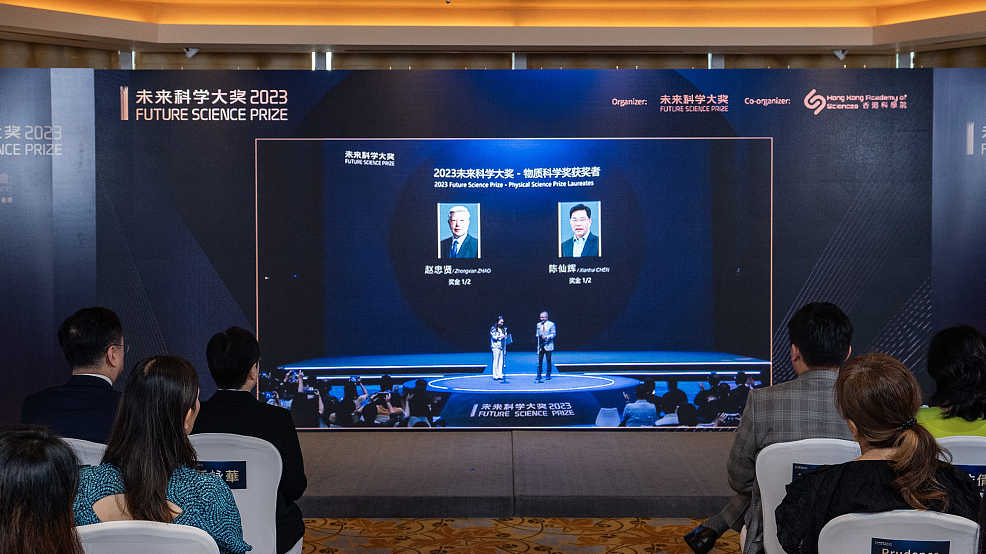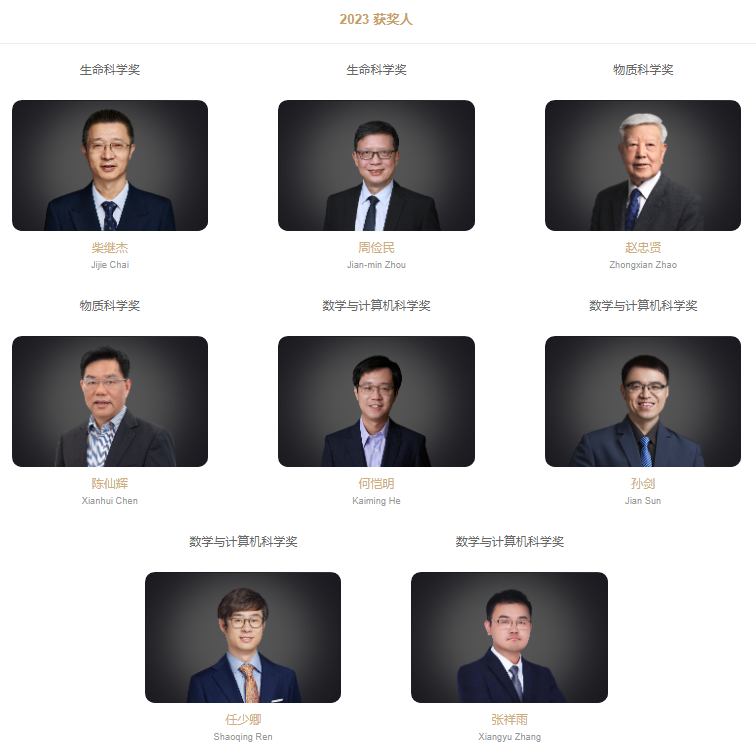
Scientists watched the announcement of the 2023 Future Science Prize laureates in Hong Kong, August 16, 2023. /CFP
Scientists watched the announcement of the 2023 Future Science Prize laureates in Hong Kong, August 16, 2023. /CFP
Eight scientists were awarded the 2023 Future Science Prize on Wednesday, which for accomplishments in life sciences, physical sciences, and mathematics and computer science.
Established in 2016, the prize is a non-governmental science award co-sponsored by Chinese scientists and entrepreneurs.
The prize in life sciences was awarded to Chai Jijie, chair professor of plant immunology at Westlake University, and Zhou Jianmin, researcher at the Institute of Genetics and Developmental Biology under the Chinese Academy of Sciences, for their discovery of resistosomes and elucidation of molecular structures and functions in plant immune responses against pathogens.
Through their collaborative work over the past 19 years, Chai and Zhou discovered that plant immune receptors activate immune responses through the formation of resistosomes.
Their work showed how the multi-component resistosome assembles after recognition of the pathogen effector by the immune receptor, and functions as a plasma membrane calcium-channel to trigger programmed cell death at the infection site to protect plants from infection, according to the official website of the prize.

Eight laureates of 2023 Future Science Prize. /Future Science Prize
Eight laureates of 2023 Future Science Prize. /Future Science Prize
Zhao Zhongxian and Chen Xianhui, members at the Chinese Academy of Sciences, won the prize in physical sciences for their seminal breakthroughs in the discovery of high-temperature superconducting materials and systematic advancements in elevating the transition temperature.
There are two primary families of high temperature superconducting materials, namely the cuprate superconductors and iron-based superconductors.
Zhao's team discovered the first superconducting material above the liquid nitrogen temperature in the cuprate family of high transition temperature materials.
In the iron-based family of high transition temperature materials, Chen's group was the first to raise the transition temperature above a limit, confirming the unconventional nature of these materials.
Both Zhao and Chen conducted systematic studies to unravel the underlying physical mechanisms of these materials, positioning themselves at the forefront of superconductor research for several decades, said the prize's website.
The prize in mathematics and computer science was given to He Kaiming, Sun Jian (late), Ren Shaoqing and Zhang Xiangyu, for their fundamental contributions to artificial intelligence by introducing deep residual learning.
Deep residual learning has been extensively adopted across many applications, paving the way for numerous breakthroughs such as AlphaGo, AlphaFold and ChatGPT. The four awardees introduced this technology as a framework for building deep neural networks.
Relative research was conducted in Beijing between 2012 and 2016, when Sun and He were researchers working at Microsoft Research Asia in Beijing, and Zhang and Ren were interns in their team.
So far, 35 scientists have been award the Future Science Prize.